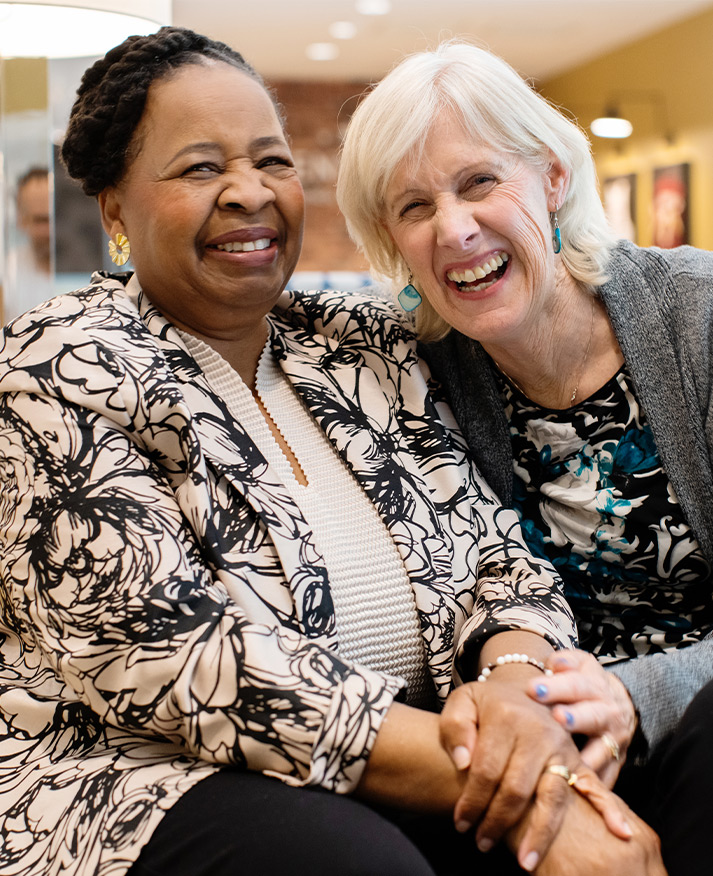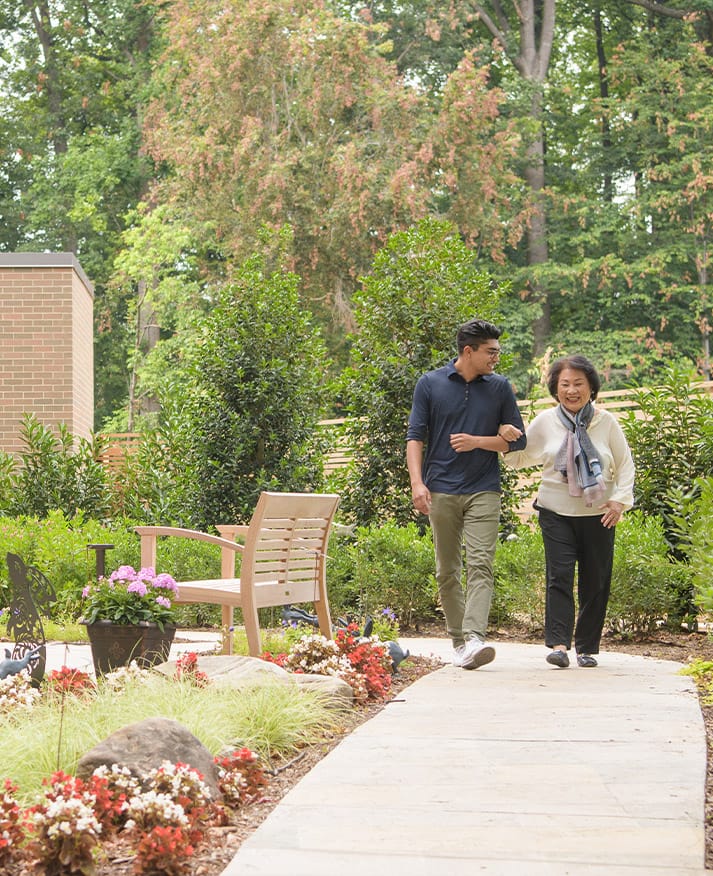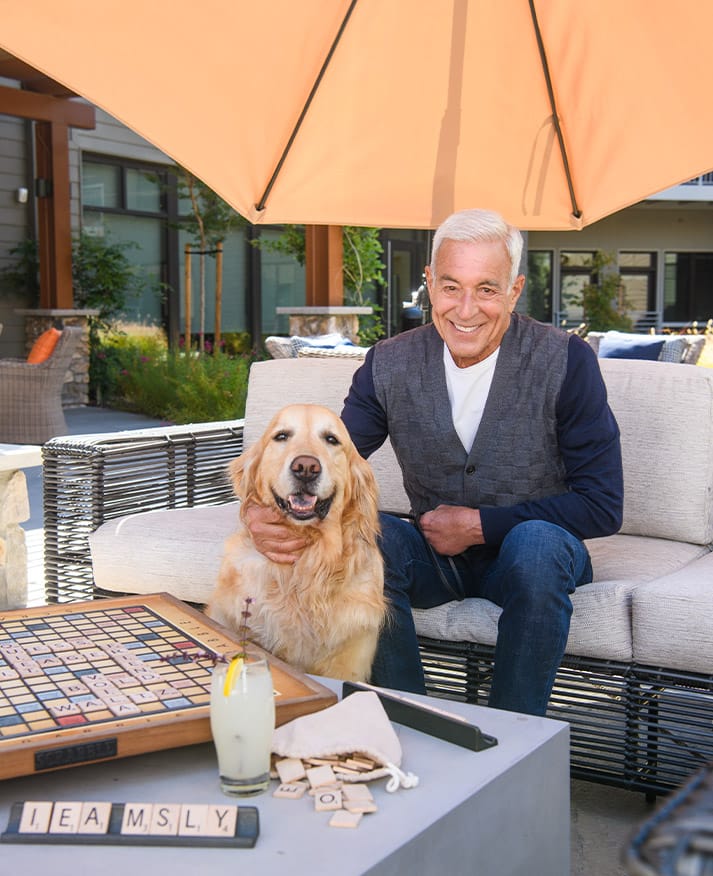Caring With Compassion: Finding Help and Healing in the Caregiving Journey
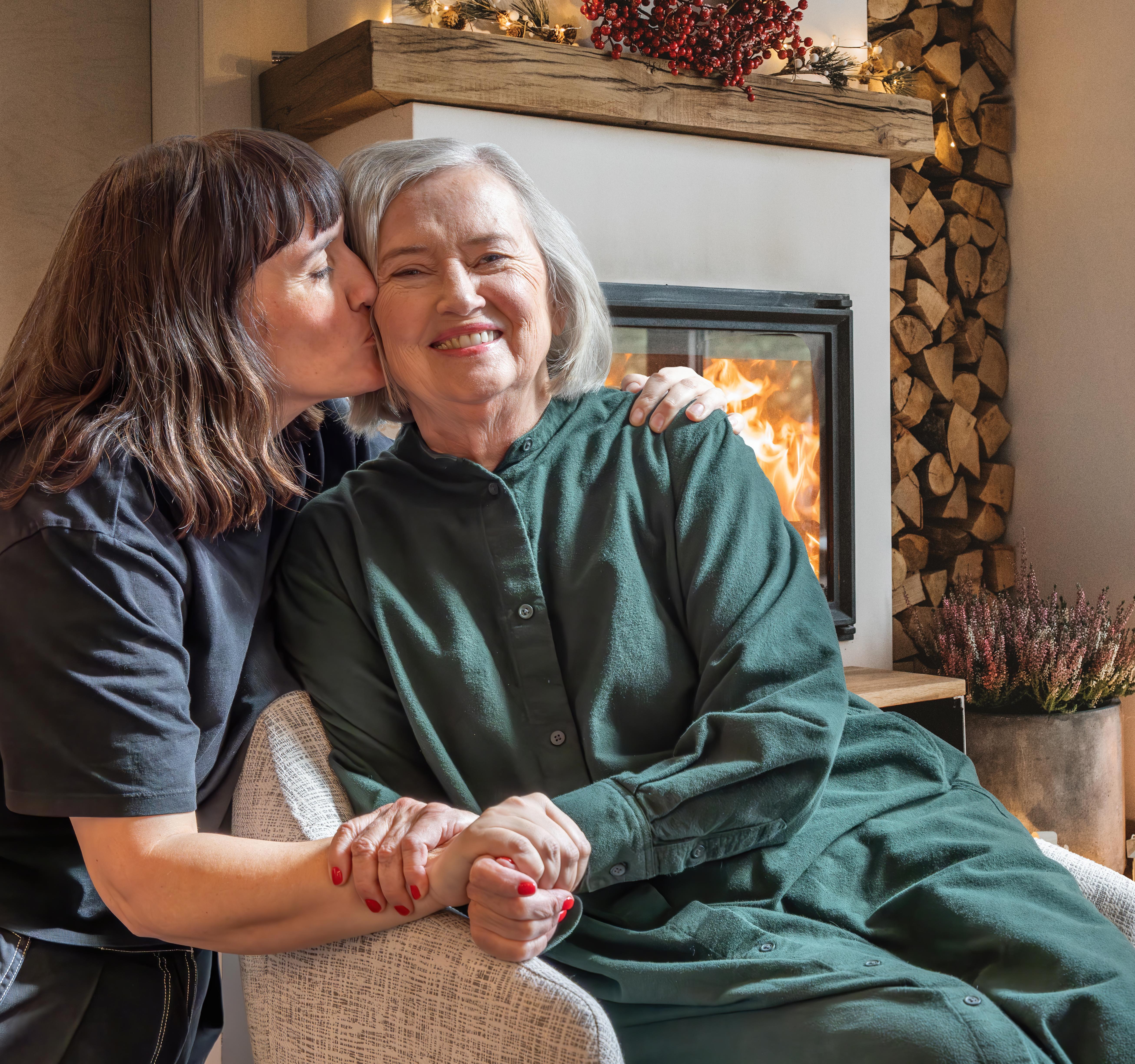
Did you know that more than 11 million people in the United States provide unpaid care for a loved one with dementia? A special report recently released by the Alzheimer’s Association states that in 2023, caregivers of people with Alzheimer’s or other dementias provided an estimated 18.4 billion hours of unpaid assistance in what was described as “a contribution to the nation valued at nearly $350 billion.”
From household chores, preparing meals, and administering medications to scheduling doctors’ appointments, managing finances, and assisting with physical activities of daily living, juggling the growing amount of responsibilities while simultaneously coping with the grief of witnessing a loved one’s decline can become a catalyst for caregiver burnout. With two in three caregivers reporting they have difficulty finding the resources and support for their needs, exploring what options are available often exacerbates the high emotional and physical stress levels that caregivers already experience.
Every family’s journey is unique, and finding the right care for an aging loved one is not a one-size-fits-all solution. Personal preferences, financial considerations, and the emotional weight of these decisions present challenges for families that undoubtedly shape the path they take. Whether it’s choosing to move a loved one to a senior living community, paying for services to receive in-home care, or dividing responsibilities among relatives and friends, each choice comes with its own set of emotional and practical hurdles.
Caregiving for a loved one with memory loss can feel like an endless journey of love and sacrifice — but for some, finding the right support transforms that journey into one of healing and reconnection.
From Partner to Caregiver
When couples vow to love each other “in sickness and in health,” they rarely anticipate the day when one may become the primary caregiver for another. As illness or memory loss takes its toll, many spouses feel a profound sense of duty to care for their partner, just as they’ve done throughout their lives together.
For 53 years, Mary and George were not only husband and wife, but also best friends, sharing a lifetime of love and adventure. When George received the diagnosis of Lewy body with Parkinson's dementia, Mary was devoted to being her husband’s sole caregiver and determined to care for him at home — a comforting environment and reminder of the life they’d built together. As time passed, the constant physical and emotional stress became overwhelming and resulted in Mary’s hospitalization. Her experience mirrors that of countless others, as nearly 60% of Alzheimer’s caregivers report high levels of stress, and over one-third experience health issues as a result of caregiving.
Faced with one of the hardest decisions, Mary knew it was time to seek additional support. After George moved into the memory care neighborhood at a Watermark community, the couple experienced a renewed quality of life. Mary could focus on being his partner again, allowing them to set forth on a new adventure — rediscovering moments of connection and joy.
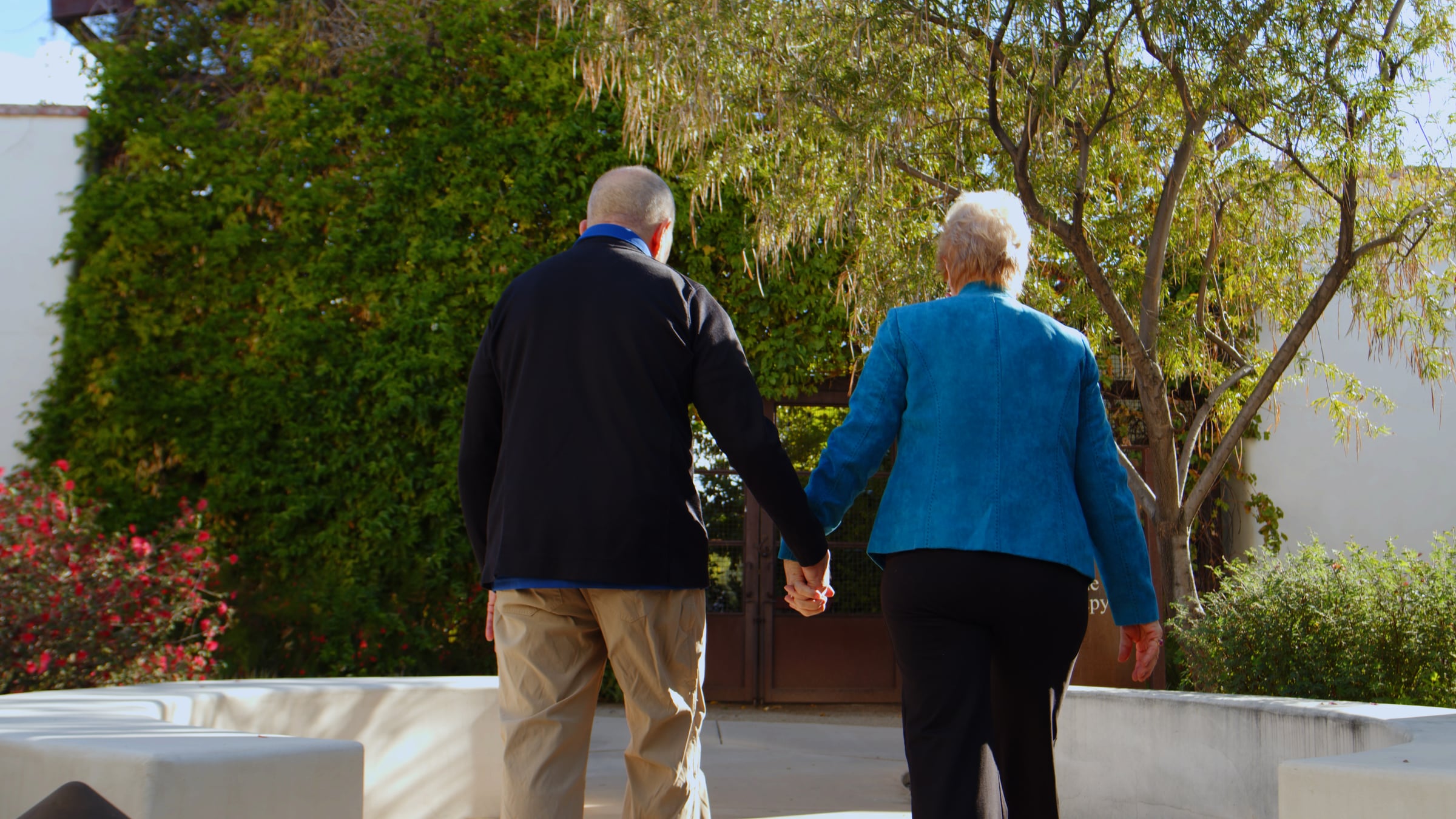
Early-Onset Alzheimer's: Navigating Unexpected Challenges
Most people diagnosed with Alzheimer’s develop the disease when they are 65 and older, with less than 10% of cases occurring before then. An Alzheimer's diagnosis is daunting at any age, but receiving the news in your 50s can be life-altering, upending the future you envisioned. For one couple, this reality forced them to navigate a new and unexpected chapter in their lives.
In 2019, Andrew was diagnosed with early-onset Alzheimer’s disease at the age of 49, prompting him to resign from his job at a global investment firm. Andrew’s diagnosis not only impacted his career, it also presented challenges that affected his well-being. Laura, his loving wife of 25 years, began seeing signs of memory impairment even before his diagnosis. Like many individuals in the early stages of their diagnosis, Andrew began exhibiting behaviors that posed critical safety risks. "There were these things that were happening that I had to figure out how to deal with, keeping him safe.” Laura began researching ways to “Alzheimer’s proof” their house so that her husband could remain at home in her care. Andrew’s neurologist recommended a proactive approach to planning for the future, suggesting to explore residential environments where he could receive support as the disease progressed.
Although the unexpected diagnosis accelerated the timeline of their retirement plans, the idea of moving into a senior living community together presented a unique opportunity for the couple to continue to enjoy their life together while still living under the same roof. Laura believes this solution, though unusual, has been paying off. “He’s doing better here than at home because there’s a schedule and a routine,” she said, detailing how Watermark provides support tailored to their individual needs. Laura, chief creative officer for a manufacturing company, now has peace of mind that her husband is happy and safe when she has to travel on business trips.
A lifelong golf enthusiast, Andrew recently played in Laguna Niguel Chamber’s Annual Golf Mixer with the community’s maintenance director, Scott. Andrew’s team took home first place in the tournament — a victory that carries more significance than a winning scorecard; it symbolizes the triumph of perseverance, reminding us that resilience prevails in the face of adversity. Finding the right support has allowed Andrew and Laura to overcome challenges, making it easier for them to continue pursuing what brings them joy. The couple recently shared their story on a podcast, detailing how they’ve fully embraced life through their journey.
Andrew and his winning team.
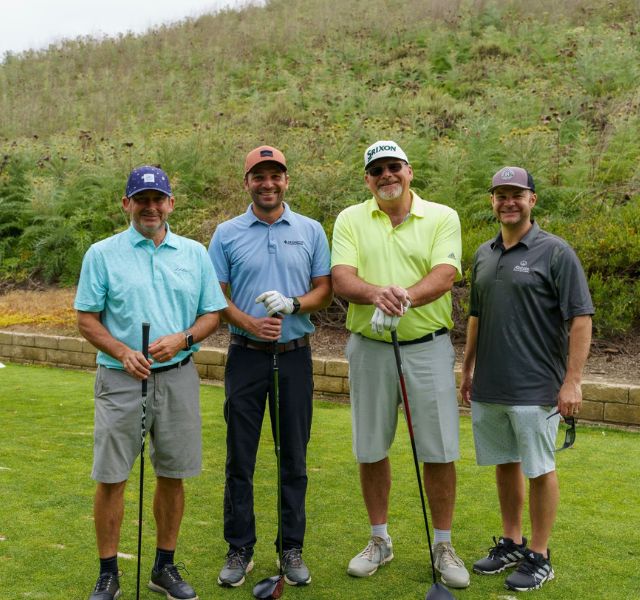
Laura and Andrew recording a podcast.
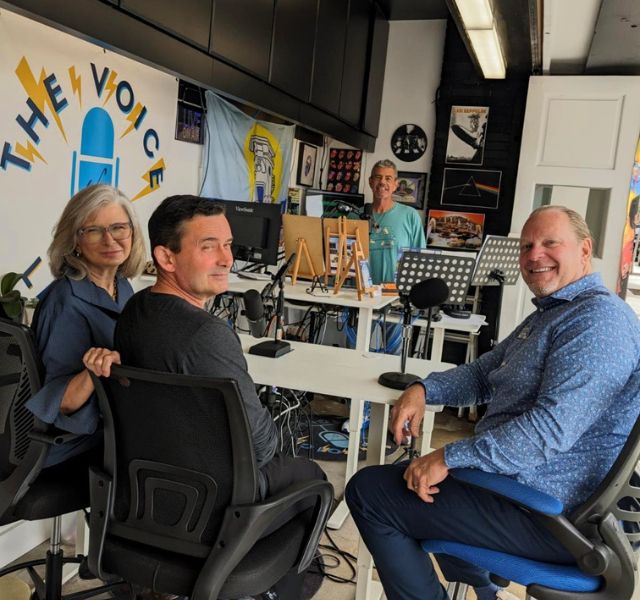
Rekindling the Parent-Child Bond
Throughout life, parents dedicate themselves to nurturing their children — offering love, guidance, and care at every turn. As time passes and roles shift, adult children often feel a deep sense of responsibility to care for their aging parents, just as they were once cared for. However, the physical demands of caregiving can sometimes overshadow the emotional connection that was once so strong.
According to the Alzheimer's Association, approximately two-thirds of caregivers in the United States are women; more specifically, over one-third of dementia caregivers are daughters caring for a parent. This statistic was a reality for Debbie, whose mother was diagnosed with Alzheimer’s disease. Like many devoted caregivers across the country, Debbie found herself struggling to provide care for her aging parent — but she experienced a profound change after her mother moved into a Watermark community. With her mother receiving expert care, Debbie could shift her focus back to their relationship — something she describes as helping her “be a daughter again.”
Debbie’s story underscores the impact of finding support to manage the physical demands of caregiving; with the help of trained professionals, families can focus on what truly matters: sharing meaningful moments, reminiscing, and strengthening their emotional connection. “I can spend time with my mom, not spending time taking care of her so much, but actually spending the time with her. So, we look at catalogs, or do puzzles together, or we watch a movie together, and it’s just been very helpful to our journey,” she said.
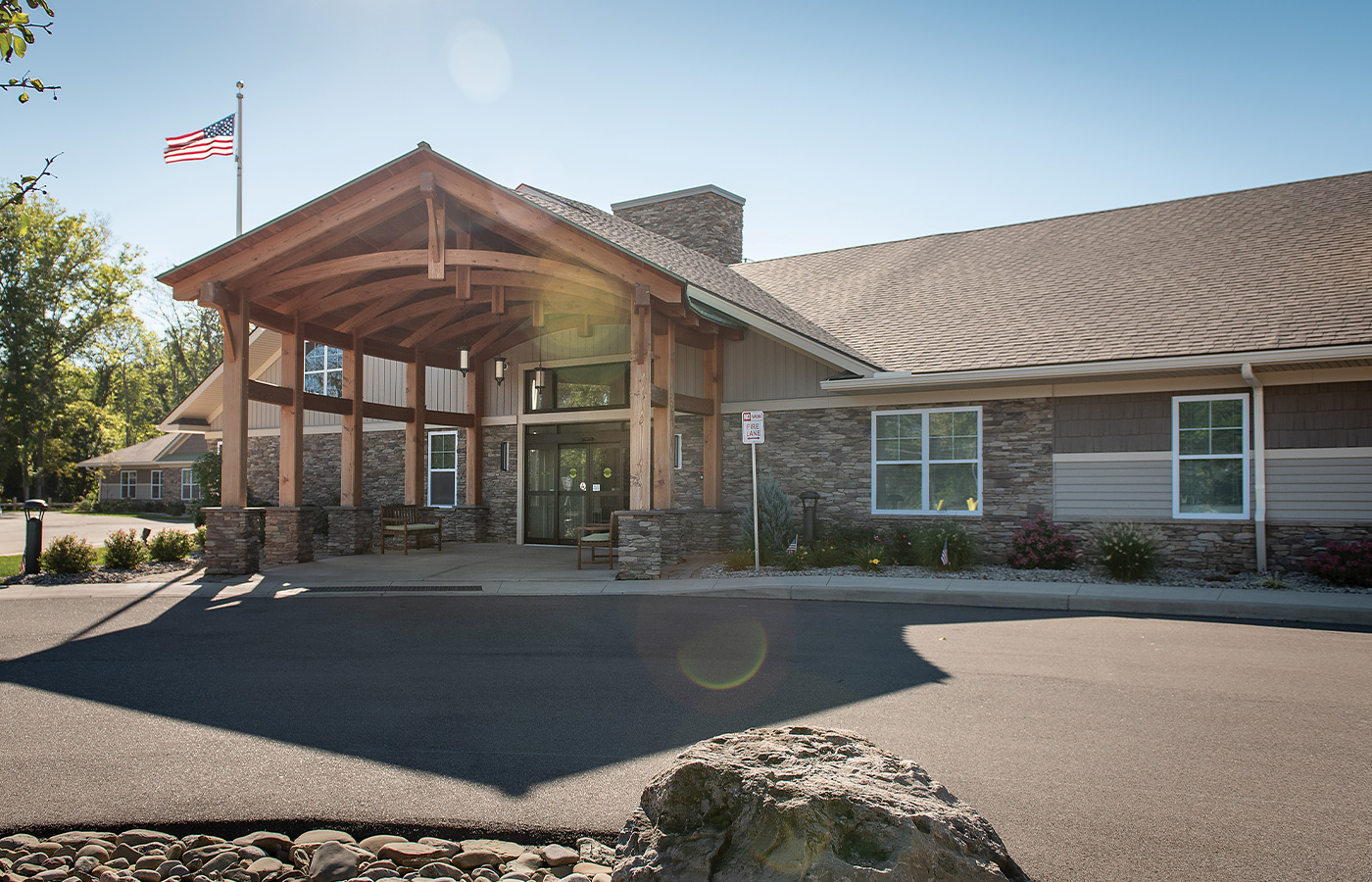
Navigating the Caregiving Journey
The Alzheimer’s Association reports that 70% of caregivers find it stressful to coordinate care for a loved one with dementia, and nearly 75% of caregivers express concern about their own health since taking on caregiving duties. Furthermore, evidence suggests that stress has an adverse effect on caregivers’ health, with more than one in three caregivers reporting their health has declined as a result of their caregiving responsibilities. When feeling prone to information overload, researching what resources are available — and determining what options are the best fit — may seem like a daunting or impossible task.
Kate Martin, MSW, LICSW, has worked in both acute and long-term care settings, providing extensive support to seniors and their families. "24/7 caregiving is three full-time jobs in one, with little to no respite. Most caregivers do not get time to themselves, and when caregivers experience burnout, it can increase the likelihood of lapses in care, unintentionally putting the health and safety of their loved one at risk," Kate explains. “It is important to find support within the caregiving community, such as virtual and in-person support groups or respite care programs. Whether through grants, adult day centers, or community-based support programs, respite care offers caregivers temporary relief from their daily responsibilities and provides them with time to focus on their own well-being."
So where does one begin when feeling emotionally and physically depleted? Perhaps one of the most important things to remember is that when you take care of yourself, you are better equipped to provide compassionate and effective support for your loved one. Being a caregiver can limit your time, energy, and financial resources, often leading you to set aside the hobbies and activities you once enjoyed. Prioritizing your own well-being through self-care is not just about personal comfort; it enables you to sustain your energy and focus, allowing you to offer the best possible care to your loved one. Self-care also involves recognizing when it’s time to ask for help, and doing so is by no means a sign of failure.
There is no shame in feeling lost, unsure, or in need of support throughout this process. It’s important to understand that no single person can manage all caregiving responsibilities alone, especially as a loved one’s condition progresses and their care needs become more complex. While caring for a loved one at home is a noble effort, for many families, it can become both unsafe and unsustainable as time goes on. Seeking additional support or transitioning a loved one to a senior living community doesn’t undermine a caregiver’s commitment; it reflects a deep respect for the loved one’s well-being and the evolving nature of their needs.
Caregivers, your dedication is truly honorable — remember to give yourself grace throughout this journey. As you navigate these challenges and face difficult decisions, know that every choice made with heartfelt consideration upholds the true spirit of your promise to care for your loved one.
Embracing available resources can provide crucial relief to both caregivers and their loved ones. Explore valuable tools and information to support you, no matter where you are on your caregiving journey.
